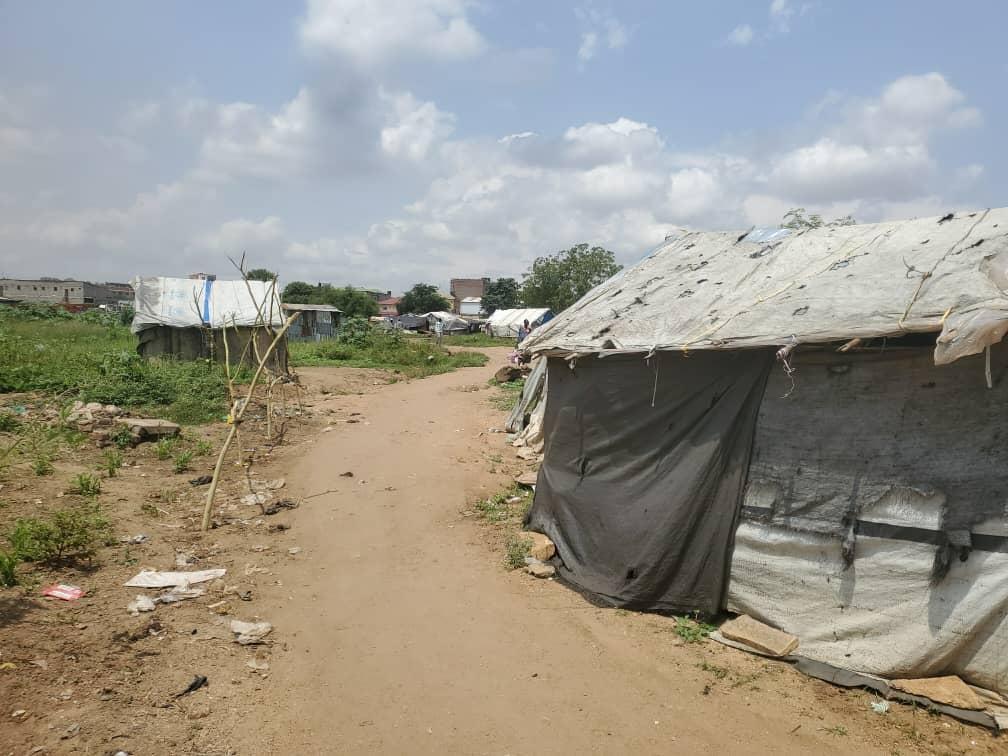Africa-Press – South-Sudan. At sundown in Hai Malakal cemetery, families light small fires among tombstones with children playing between graves, and laundry hunging from headstones.
For more than 9,000 people, Juba’s cemeteries have become makeshift homes—grim sanctuaries for the displaced, the widowed, and the impoverished—pushed to the margins by war, skyrocketing rent, and land insecurity.
“I have been here since 1986,” said Sultan Joseph Wani, one of the longest-standing residents of Hai Malakal cemetery.
“Most of us had homes before, but after independence, people were evicted. Widows whose husbands died in war had no other place to go. Others came after the 2013 and 2016 conflicts. Now, we clean Konjo-Konjo market to survive.”
Juba’s housing crisis has deep roots.
Years of armed conflict have displaced hundreds of thousands, and the capital’s population has ballooned without corresponding investment in housing.
In a city where rent for a single room can exceed $150 per month, affordable housing remains out of reach for the majority.
With no formal safety net and no public housing system, those with nowhere to go have turned to the city’s cemeteries—intended for the dead, now sheltering the living.
Residents say humanitarian assistance once offered some relief—but that support has long since dried up.
“We used to get support like other IDPs, but it stopped in 2023,” said Sultana Zakaria Kani, a mother of four. “Children here have died of hunger. We lost everything in 2016, and no one has checked on us since.”
Another resident, Lilian Keji, made a desperate plea for basic necessities:
“I appeal to the government to provide plastic covers for shelter, bathrooms, and medicine for our children. These are our immediate needs.”
Others, like Marco, a young man who has spent seven years in the graveyard, survive by collecting garbage.
“We lack even the simplest necessities. Children die here from treatable illnesses. Mothers search for food while their children go hungry. We are forgotten.”
South Sudanese law explicitly criminalizes living in cemeteries, says a legal mind.
“Section 204 of the Law of Encroachment criminalizes the invasion of burial sites, reflecting their sacredness,” explained Advocate Monyluak Aguer.
“Violators face at least three years in prison. But criminalization alone is not the solution. People turn to graveyards because they cannot access land or housing.”
Aguer stressed that a lasting solution requires reform of South Sudan’s broken land allocation systems and investment in affordable housing.
Civil society leader Edmond Yakani echoed this, adding that although Parliament has passed a motion for a national cemetery management policy, deeper systemic reforms are needed.
“The policy must prohibit settlement in cemeteries. It’s inhumane and disrespectful. But unless housing insecurity is addressed, people will continue living here out of desperation.”
For many in Hai Malakal cemetery, graves have become more than final resting places—they are walls, kitchens, bedrooms, and playgrounds.
“We have suffered since 2013,” said Regina Koreing, a widow and mother. “We beg in the market to eat. Since aid stopped, we’ve been on our own. We only ask for basic help—shelter, food, medicine.”
“We live here because we have no other option,” added Sultan Mathew Lako. “We are widows and displaced people. All we ask for is housing, clean water, and access to healthcare.”
Until South Sudan’s urban housing challenges are resolved, these cemeteries will remain unintended homes—blurring the line between the living and the dead in the heart of the nation’s capital.
For More News And Analysis About South-Sudan Follow Africa-Press






